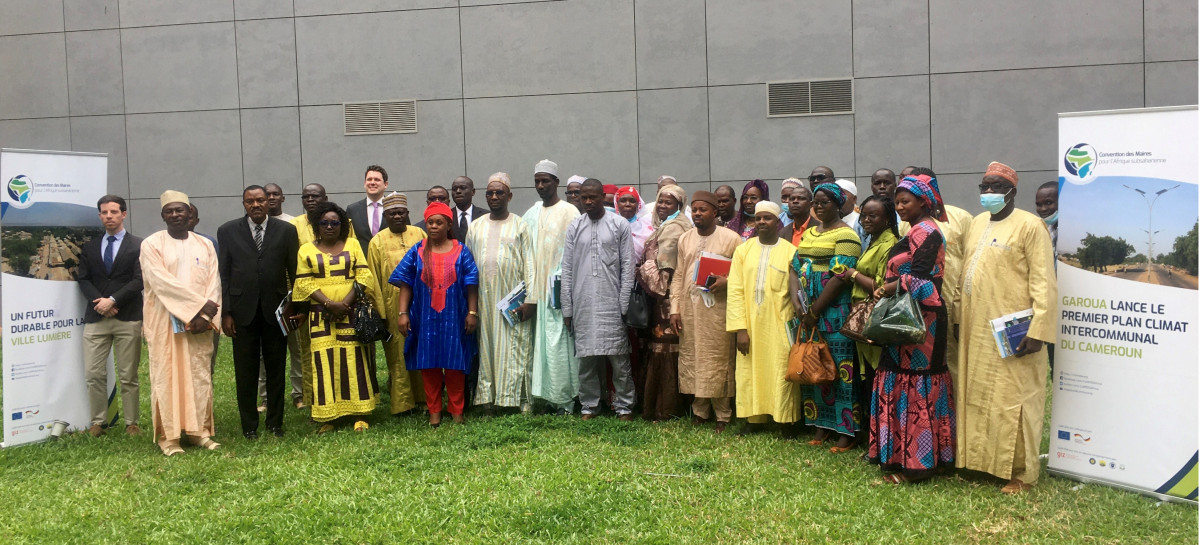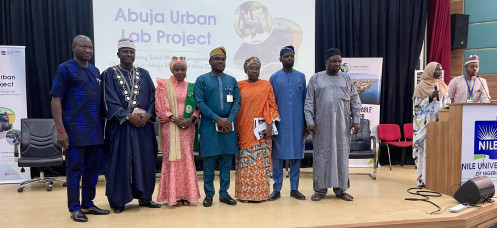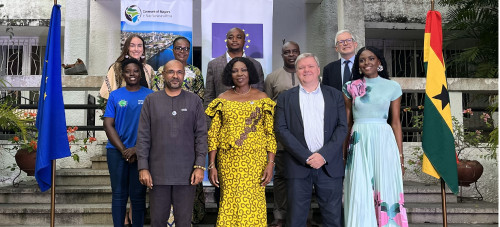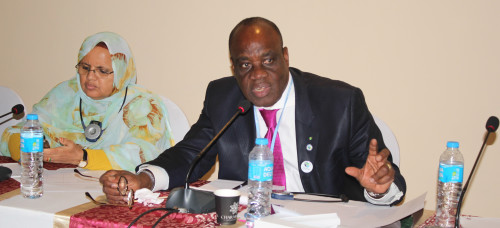Garoua launches Cameroon's first intercommunal climate action plan
Published: 3 May 2022

Among the objectives of the climate plan, the city intends to strengthen its resilience to climate change in the most affected sectors such as agriculture, reduce its overall projected emissions by 25%, and extend household access to electricity to 90% by significantly increasing the production of renewable energy.
On 12 April 2022, the City of Garoua and its three subdivisional councils (Garoua I, II and III) launched their Sustainable Energy Access and Climate Action Plan (SEACAP), a vast climate action programme for the 2030 horizon. This document outlines key goals, actions and outcomes for the city to adapt to the impact of climate change and improve access to clean, sustainable and affordable energy.
Developed over two years, the SEACAP contains the results of 9 technical reports using literature reviews, surveys on 1 120 households, interactive workshops and participatory mapping exercises. This makes the document robust and context-specific, while considering both existing data and the lived experience of citizens. In addition, the SEACAP is the result of workshops in collaboration with the City mayor's office, the 3 subdivisional councils, civil society and delegates from several ministerial departments. In particular, those in charge of the environment, nature conservation and development; water and energy; and agriculture and rural development.
This process highlighted the negative impact of heatwaves and floods in sectors like agriculture and health in Garoua. The city intends to anticipate and adapt to these effects through adaptation actions such as the development of 53 ha of green spaces and the training of the agricultural community on climate-resilient agricultural practices.
According to the survey report, most of the emissions come from four sectors: transport (first with 43% of emissions), waste (24%), agriculture and livestock (23%) and finally stationary energy (10%). If no climate action is taken, Garoua's greenhouse gas (GHG) emissions could increase by 40% over the next decade. Since Garoua wants to limit its contribution to GHG emissions by reducing emitting activities, the mitigation pillar of its SEACAP focuses on transforming these key sectors.
The SEACAP will also provide a roadmap for ensuring affordable and sustainable energy for citizens while preserving the environment. In addition to guiding energy planning and development initiatives in the energy sector, Garoua has the capacity to attract private sector investment as the SEACAP demonstrates the city's solar energy potential. This includes new business opportunities with solar panels, biodigesters and clean cooking technologies. While statistics show that Garoua has good energy access figures, with 62% of households connected to a clean grid that uses mostly renewable energy, the city aims to reach 90% electricity access by 2030. Increasing on-grid and off-grid power generation, and extending the existing grid to unserved areas are concrete action points already defined.
"Through the SEACAP development process, Garoua has demonstrated its capacity and willingness to lead climate action in Cameroon by setting ambitious targets to reduce its GHG emissions, adapt to the impact of climate change, and improve access to clean, sustainable and affordable energy in the region. The next steps will be to turn these plans into actions and identify projects to further develop these proposals. The CoM SSA initiative will continue to support Garoua in maturing projects to a more bankable stage, by helping local governments identify financing mechanisms and investors," said the 2nd Deputy Mayor of the Urban Community, Mr. Hakassou Noivouna.

SEACAP process from the 1st Deputy Mayor, Mr. Ndiong Nestor, representing the Benue Department.
The city was accompanied in these steps by technical assistance and expert advice from the Deutsche Gesellschaft für Internationale Zusammenarbeit (GIZ) through its membership in the Covenant of Mayors for Sub-Saharan Africa (CoM SSA), which provides technical support and advice to cities through three pillars of action: (1) climate planning, which includes the development of SEACAPs; (2) technical assistance to support local governments in implementing climate and energy infrastructure projects; and (3) knowledge exchange, for example, through city-to-city partnerships. In Cameroon, the CoM SSA program is co-financed by the European Union and the German Federal Ministry for Economic Cooperation and Development (BMZ).





